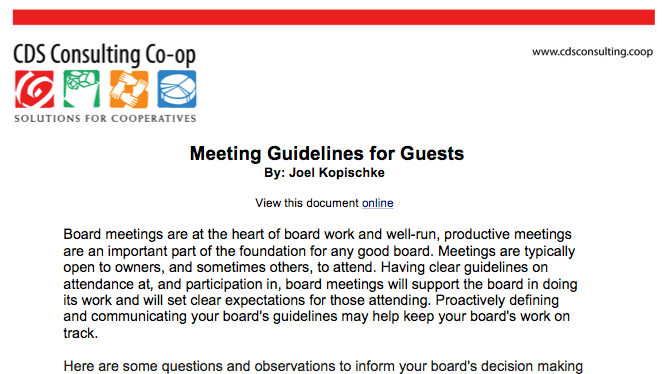Board Discipline
In order to be effective in leading a retail food cooperative, a board must protect the integrity of its process. Two keys to sound board process are the ability to speak with one voice and the ability to protect confidential information. Most often these objectives are achieved with a shared understanding of the board’s roles and responsibilities, by establishing a set of clearly articulated [...]



